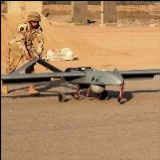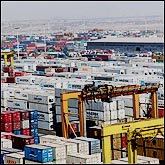 On November 7, the Directorate of Defense Trade Controls (“DDTC”) published its second iteration of the proposed rules on aircraft and aircraft components as part of the White House’s export control reform initiative. As with the first iteration, published back in December, this new version of the proposed rules continues to pursue the goal of making the USML, to the extent possible, a “positive” list and to eschew the “specifically designed” criterion which has been central to the current USML approach to determining what items are controlled by the list. And although the new rules are a laudable improvement they still fall short of these worthy aspirations.
On November 7, the Directorate of Defense Trade Controls (“DDTC”) published its second iteration of the proposed rules on aircraft and aircraft components as part of the White House’s export control reform initiative. As with the first iteration, published back in December, this new version of the proposed rules continues to pursue the goal of making the USML, to the extent possible, a “positive” list and to eschew the “specifically designed” criterion which has been central to the current USML approach to determining what items are controlled by the list. And although the new rules are a laudable improvement they still fall short of these worthy aspirations.
First, for certain aircraft, such as the F-22, parts and components will still be controlled if they were “specially designed” for those aircraft. And DDTC concedes it hasn’t figured out a good way to define “specially designed,” conceding that the definition used in the December notice was being revised and would be the subject of a future notice.
Second, not all the covered aircraft are positively defined. Under the proposed revision of Category VIII, “armed unmanned aerial vehicles” are covered, which makes eminent sense, but so are “unarmed military unmanned aerial vehicles.” I can hear you asking now what makes an unarmed UAV a military UAV? DDTC concedes it has no earthly idea itself of the answer to this question, and asks for comments on this matter, sort of like the stumped contestant in “Who Wants To Be A Millionaire” using the audience lifeline.
Here’s a thought on an answer to that question. Unarmed UAVs are never military unless they are classified or contain classified systems or components. Because the proposed rule covers classified parts, the same principle should cover, by extension, classified aircraft or aircraft with classified components, in which case military unarmed UAVs do not need to be listed.

 Posted by
Posted by  Category:
Category: 

 I’m not quite sure what to make of
I’m not quite sure what to make of  My inbox this morning had several, er, heads up alerting me to news that the Directorate of Defense Trade Controls (“DDTC”) has
My inbox this morning had several, er, heads up alerting me to news that the Directorate of Defense Trade Controls (“DDTC”) has 



